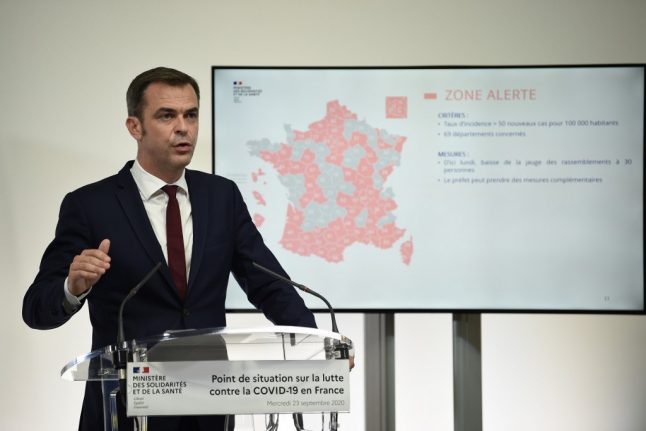In the capital, Covid-19 rates by Thursday had surpassed all the three thresholds set by the government to be bumped up to a “maximum alert” level in the five-level alert system introduced by the government last week.
Health minister Olivier Véran at weekly press conference says IF Covid-19 situation in Paris doesn't improve over weekend the city could be placed on “maximum alert” and all bars and restaurants ordered to close as of Monday.
“We have to anticipate this possibility”, Véran said.— Kim Willsher (@kimwillsher1) October 1, 2020
Véran said the government was striving to keep a close dialogue with local authorities.
Last week's announcement of closing down bars and restaurants in Marseille were met with fury in the city, both from the bar and restaurant sector, but also from local authorities who criticised a lack of dialogue from the government before making the decision.
'Improvement'
The health minister said that the measures seemed to have a positive impact and that things were looking slightly better in some of the cities that had tightened their rules – including Marseille.
“All these measures have helped us lower the virus' contagion,” the health minister said.
READ ALSO Social bubbles: Why does France have no Covid-19 laws on private social events?
“Do not be discouraged if you see that the health situation continues to deteriorate for a few days in your area. Your efforts, they must pay off and they will,” he said.
“If all of us make an effort to reduce our social contacts.. We will be able to push back the virus.”



 Please whitelist us to continue reading.
Please whitelist us to continue reading.
Member comments